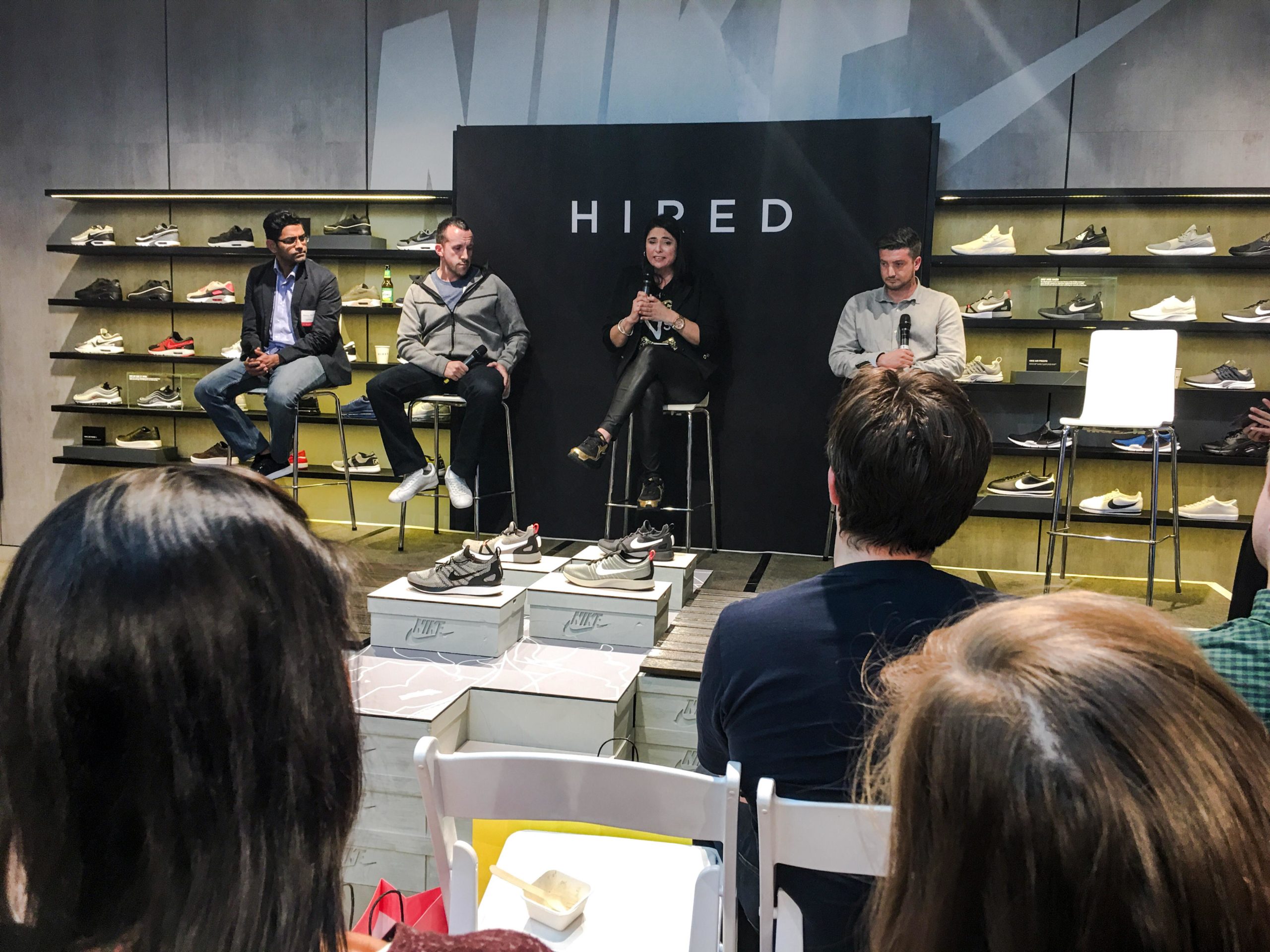
Sydney Recruiting Experts Discuss Diversity, TA Metrics
Over the past several weeks, Hired has gathered rooms full of talent acquisition pros at Nike stores around the globe for an evening of recruitment discussion, cocktails, and $100 Nike gift cards. For this installment, we jetsetted off to the land down under, assembled a panel of highly experienced Sydney recruiting experts, and called 100 of our favorite Australia-based recruiters. We pulled out some of our favorite quotes from the panel discussion below, so even if you missed out on the fun, you can still join in the TA expert brain-picking. Here’s the lineup:
Mahesh Muralidhar, Head of People Ops, Airtasker
Neil Gunning, Head of TA, Siteminder
Dale Clareburt, CEO & Co-Founder, Weirdly
Chris Long, Manager Organisational Strategy, Sydney Metro
Like any good recruitment panel, metrics were top of mind. While our panelists admitted speed-to-hire and cost-per-hire would always be relevant, most of their focus is on the bookends of recruitment: top of the funnel and final stages/post offer level data. Neil over at Siteminder makes sure to dig in to his team’s engagement success:
Really important for us is candidate response rate. How are you reaching out to people? What platforms are you using? What sort of response rate are you getting? Ultimately, you’re going to be judged on hires made and if you aren’t efficiently creating quality pipeline, you won’t make those hires.
Meanwhile, at the other end of the spectrum, Sydney Metro’s Chris Long says it’s all about quality of hire. Rather than calculate this for current employees (although they do), Chris’ team has slotted in this assessment early on in the hiring cycle.
We look at people’s productivity, the tenure they’ve had, and their impact they’ve had on their organization. If you retroactively measure quality-of-hire and it turns out to be low, by then it’s too late.
Airtasker’s Head of People Ops, Mahesh, loves digging deeper to identify how intimately his team understands the roles they’re recruiting for. He accomplishes this by measuring the ratio of final round interviews: number of candidates screened. In addition to being a barometer for quality of the pipeline, it also speaks to hiring team efficiency and candidate experience.
For the quality of a TA professional, I look at how much work they put in and what do they get out of it. How good are you at screening people and taking others to the final interview? This is a calculation of final interviews over number of people screened. If you’ve got a high number of final interviews relative to people you’ve spoken to, that tells me the recruiter understands the job really well.
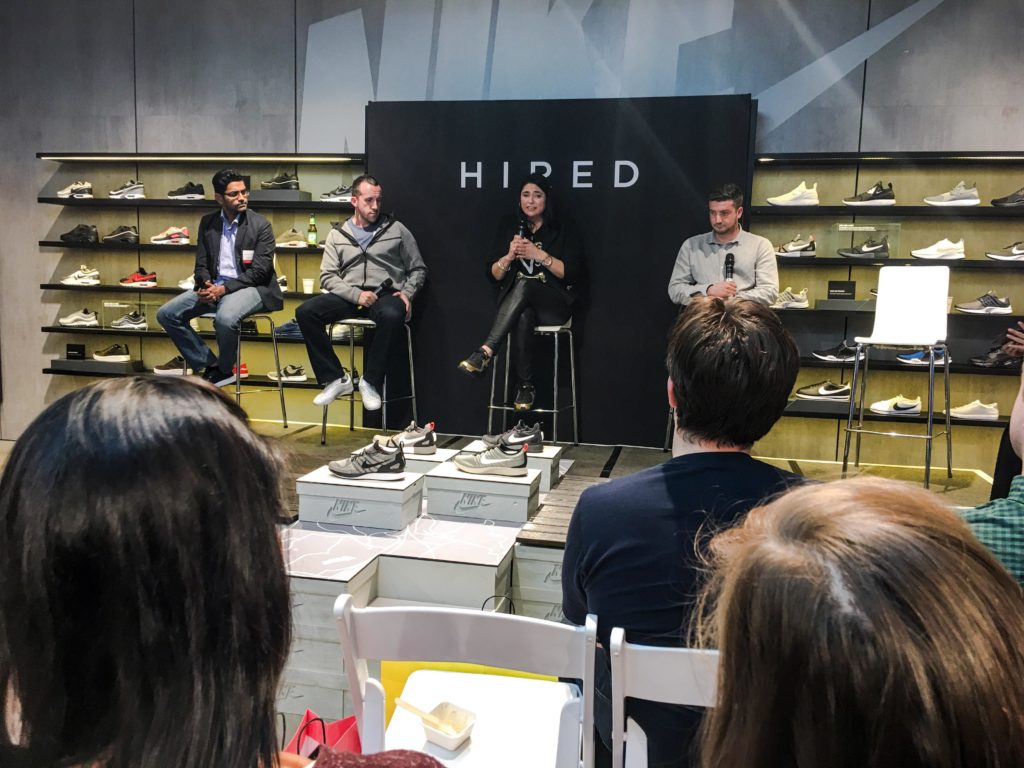
Diversity recruiting was a common theme throughout the evening, particularly when it came to the audience Q&A. We covered everything from measuring internal diversity and goal-setting (which panelists agreed was an important first step, but not nearly enough on its own), as well as specific tools to help combat a lack of diversity. Dale Clareburt interfaces with hundreds of recruiting teams, and she was able to recount some of the tools her customers are using, as well as specific projects they’ve undertaken to address issues like unconscious bias. In the latter case, this looked like removing pictures and names from resumes, performing automated remote video interviewing and obfuscating the transcripts, and otherwise trying to anonymize applicants for as long as possible. While Dale admits this may help encourage diverse pipelines early in the process, she suggests the problem goes deeper:
The sourcing and initial assessment itself can be unbiased, but the bias still exists when the person turns up for the on-site interview. This is why unconscious bias training is more important than TA folks hiding themselves for as long as possible in the process.
Making interviewers and recruiters aware that these biases exist and what they can do to curb them is a crucial step. Facebook has put together some material on the topic, and it’s a good starting point for talent leaders who want to make sure their candidates are being assessed fairly.
There was some concern among the panelists that focusing on the above elements could throw a wrench in a finely-tuned hiring machine, and may even shift focus away from the ultimate goal of the recruiting team: making hires. To that, Mahesh offered a reminder to never cave to the pressure of filling a role for the sake of filling it.
Hiring the wrong person has a huge impact on attrition. With senior stakeholders, I want to hear you say no to candidates. Please. If you’ve got a strong team, you will get what you ask for. So please keep asking for top of the line.
Sad you missed out on the expertise shared by these Sydney recruiting experts? Don’t worry recruiting pals, we’re fixin’ to bring informative TA panels to a city near you. Follow @Hired_HQ over on Twitter and stay tuned for more information about events near you!
Related blog posts

How To Beat Burnout For Managers: 3 Habits For Stress Relief
Are you feeling overwhelmed as a manager? Studies show that managers face a higher risk of burnout...
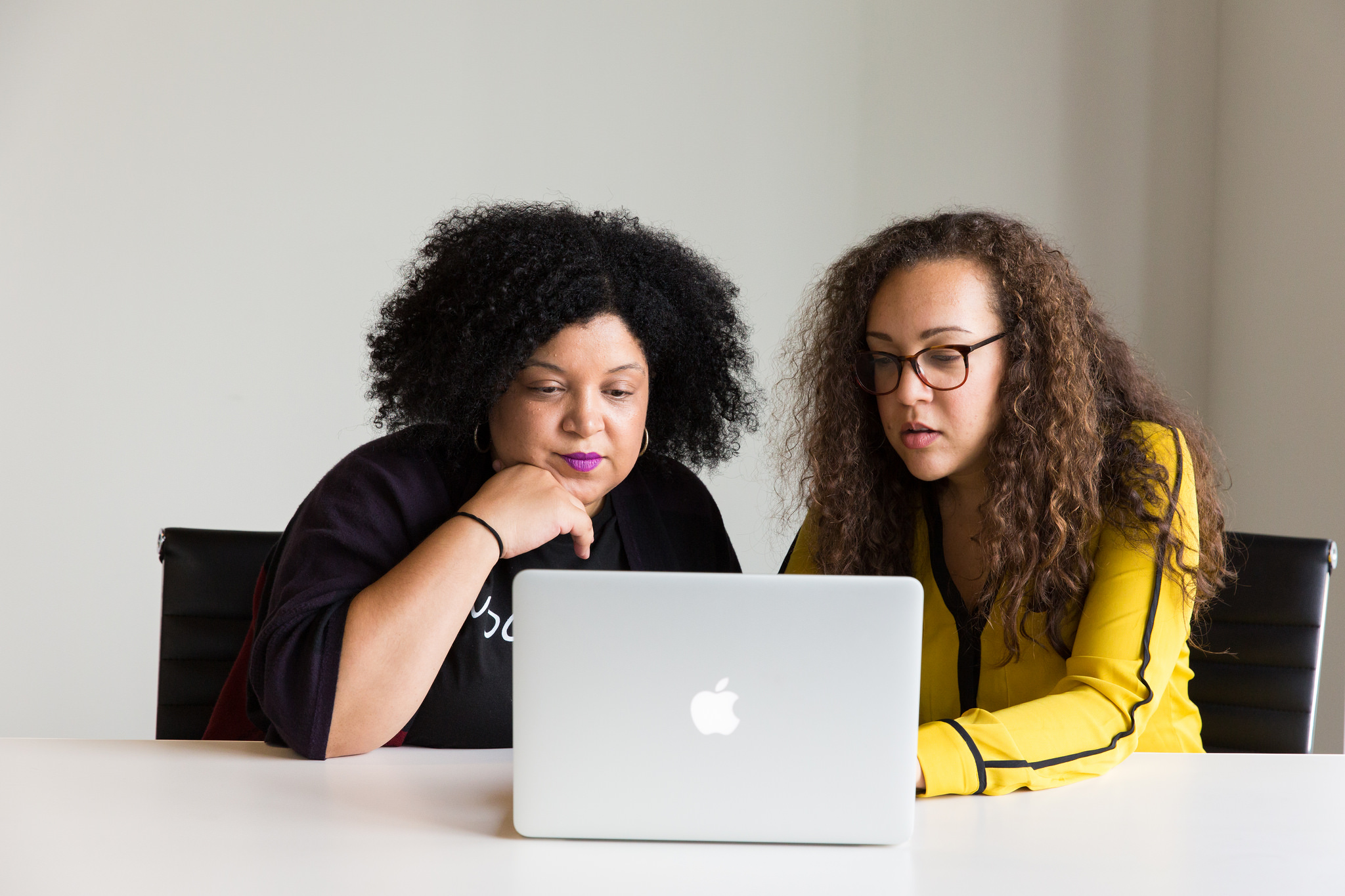
9 Game-Changing Project Management Tools for Scaling Your Team’s Results
The ever-changing workplace of today brings with it ever-evolving workplace rituals —...
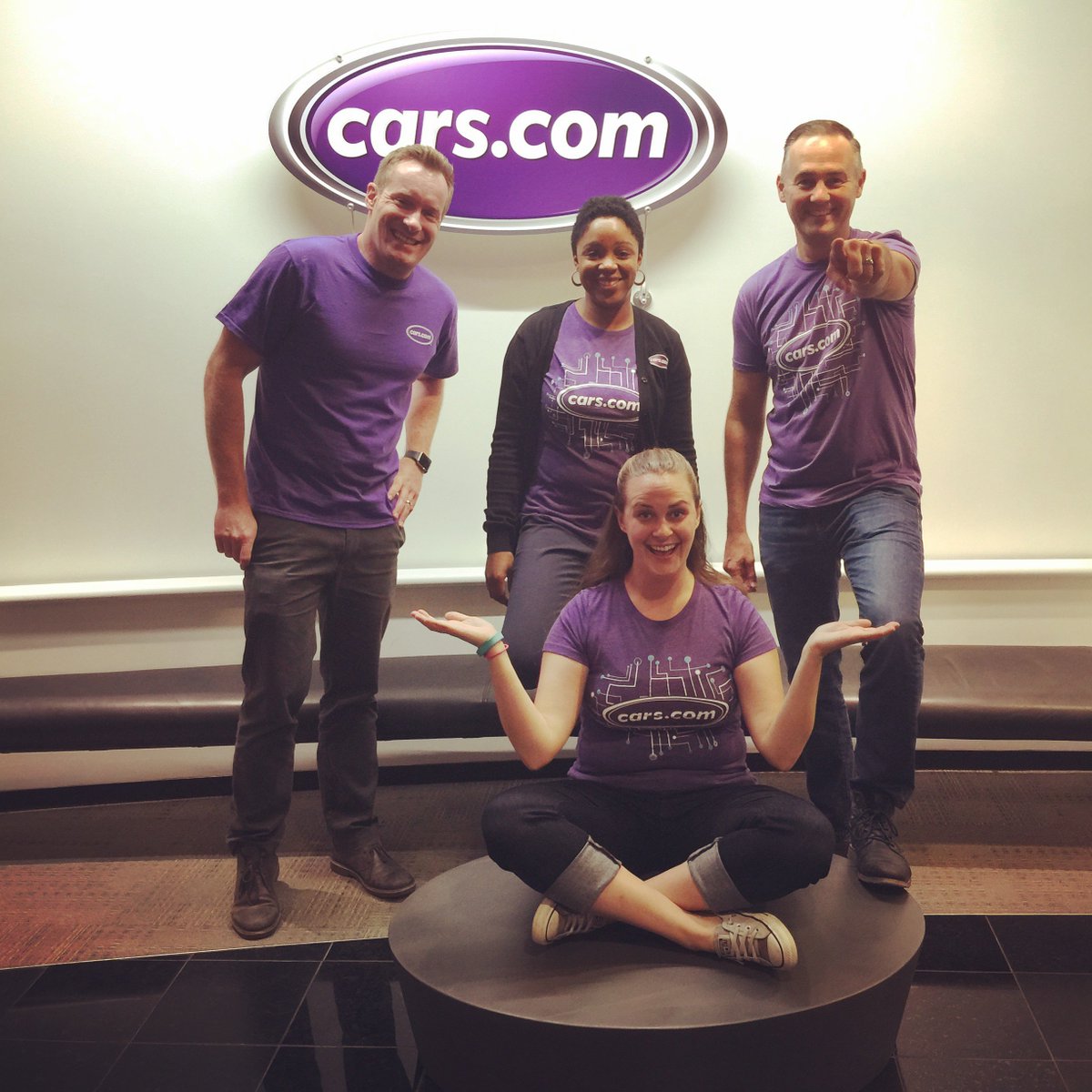
How Cars.com Is Driving the Future of Tech Recruiting
Mike Dwyer is a man of many talents. HR leader, improv comedian, and entrepreneur, Mike is known...

What Do Millennials Want at Work? 7 Things They Want & 3 Employer Dealbreakers
As a key part of today’s workforce, Millennials have been the source of many work memes,...
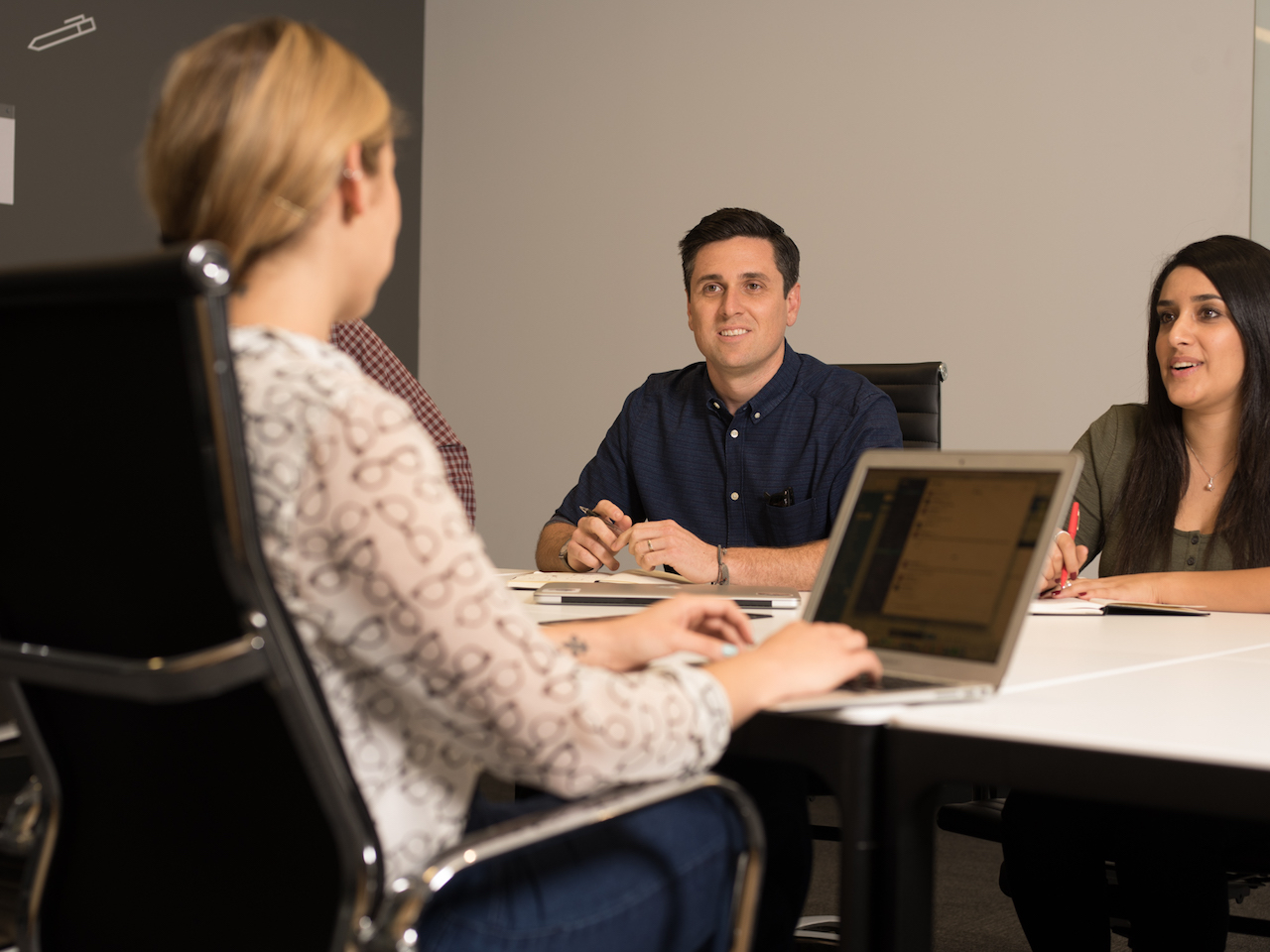
5 Interview Questions Hiring Managers Need to Ask Before Making An Offer
Job interview questions can be time consuming fact-finding missions that don’t always yield...

The Key to Hiring Top Software Engineers Isn’t More Money
With demand for technical workers soaring, and an expected job growth rate of 17% by 2024, hiring...

